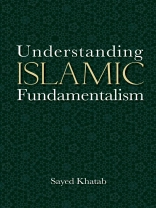Beginning with an examination of medieval Islamic fundamentalist movements such as Kharjism, Ibadism, Hanbalism, and Wahhabism, Sayed Khatab looks at the similarities and differences between them and present organizations such as al-Qa
’ida. It may be surprising that many of the radical narratives embraced by modern groups have not emerged recently. Identifying these roots can lead to a better understanding of al-Qa’ida’s theological and intellectual narratives, and how they effectively indoctrinate youths and attract many of them to violent acts of terrorism. The book then focuses on al-Qa
’ida’s theology, ideology, and tactics; the geographic contours and implications of al-Qa
’ida’s political strategy in relation to the western and eastern countries which are considered enemy states; the impending clash of cultures; and the ideological war within al-Qa
’ida. Innovative in its concept, examining political Islamic thought from a historical to a contemporary perspective,
Islamic Fundamentalism generates new understanding of the many complexities of political Islam, and the role of violence and terrorism.
Innehållsförteckning
Acknowledgements
Introduction
1: Islamic Fundamentalism
The Nature of the Challenge
2: The Origins of Fundamentalism
Kharijism
Ibadism
Hanbalism
Wahhabism
3: From Fundamentalism to Neo-Jihadism
4: Al-Qa’ida
Bin Laden
From Jihad to Terrorism
Towards the Formation of al-Qa’ida
The Mullah and the Hidden Imam
5: Al-Qa’ida’s Ideology
Jihad: Muslim Consensus
Al-Qa’ida: Neo-Jihad
The Offensive Jihad
The Defensive Neo-Jihad
Neo-Jihad against the Rejectionists
Who Declares Jihad?
The Neo-Jihad is Outdated
6: Al-Qa’ida’s Tactics
Tactical Goals of 9/11
Tactics after 9/11
The Plan of Action
Principles of Military Actions
Political Games
Al-Tatarrus and the Killing of Civilians
7: Inside al-Qa’ida: The Ideological War
Dr Fadl
Criticism of al-Qa’ida’s Theology and Ideology
Stages in al-Qa’ida’s Establishment
Egyptian Jihad in al-Qa’ida
Mullah Umar, Bin Laden, and 9/11
Bin Laden and al-Zawahiri should be Tried
American Foreign Aid
Al-Qa’ida’s Response to Dr Fadl
Conclusion
Sovereignty (Hakimiyyah)
Bibliography
Om författaren
Sayed Khatab is a senior research fellow at the School of Political and Social Inquiry and Global Terrorism Research Centre, Monash University in Australia. He is the author of
Democracy in Islam (with G.D. Bouma), and has written extensively on the subjects of Islamist movements, relations between the Muslim world and the west, and counter-terrorism strategies.












